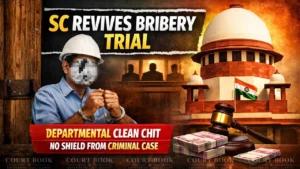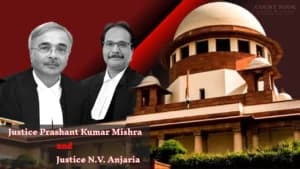In a poignant turn, the 91-year-old father of Air India pilot Captain Sumeet Sabharwal, who perished in the June 12 Ahmedabad crash, has approached the Supreme Court seeking a judicially monitored inquiry into the tragedy that killed 260 people. The plea, filed by Pushkaraj Sabharwal along with the Federation of Indian Pilots (FIP), alleges that the current investigation by the Directorate General of Civil Aviation (DGCA) and Union Ministry of Civil Aviation is “biased, incomplete, and technically flawed.”
“The probe cannot end by blaming a man who can no longer defend himself,” said one pilot outside the courtroom, echoing sentiments of many in the aviation fraternity.
Background
The Air India Boeing 787-8 Dreamliner crashed moments after takeoff from Ahmedabad, leaving behind one of the deadliest aviation disasters in recent Indian history. The DGCA’s preliminary report, submitted on June 15, pointed to “pilot error” as the primary cause. However, Sabharwal’s plea disputes this conclusion, arguing that the report overlooks systemic and technical lapses that demand independent scrutiny.
The petitioners listed several issues - from unexplained RAT (Ram Air Turbine) deployment to electrical failures and fuel system anomalies - all of which, they claim, were either ignored or inadequately investigated. They also cited other global Boeing 787 incidents, suggesting a possible pattern of technical malfunction.
The plea accuses the authorities of “selective disclosure” of facts, which, according to the petition, “not only misdirects the inquiry but tarnishes the reputation of deceased crew members who cannot speak for themselves.”
Court’s Observations
When the matter came up for preliminary mention, the Supreme Court appeared cautious but receptive. The bench reportedly noted that aviation safety cannot be compromised by procedural opacity.
“The bench observed, ‘Aviation accidents require transparency, especially when state agencies are both the investigators and regulators. Justice must be seen to be done,’” a lawyer familiar with the proceedings shared.
The Court also took note that another case - filed by the Safety Matters Foundation, an NGO focused on air safety - is already pending before it. Both matters may be tagged together for a holistic hearing, sources indicated.
Legal observers in Delhi noted that the petition could trigger a broader discussion on India’s aviation accountability framework, especially concerning DGCA’s dual role as both the enforcer and investigator.
Decision
The Supreme Court has not yet issued any formal direction but acknowledged the “seriousness of the allegations.” The registry is expected to list the matter for hearing shortly, possibly alongside the pending NGO petition.
For now, the grieving father’s demand is simple - a fair probe led by a retired Supreme Court judge with independent aviation experts onboard. As the petition puts it, “An incomplete and prejudiced inquiry not only denies justice to the dead but endangers every passenger yet to fly.”
The next hearing, once scheduled, may determine whether India’s top court will indeed order an unprecedented judicially monitored inquiry into an aviation tragedy that continues to haunt both families and flyers alike.
Case: Pushkaraj Sabharwal & Federation of Indian Pilots v. Union of India & Ors.
Petitioners: Pushkaraj Sabharwal (father of deceased pilot Capt. Sumeet Sabharwal) & Federation of Indian Pilots (FIP)
Respondents: Union of India, Ministry of Civil Aviation, Directorate General of Civil Aviation (DGCA)















